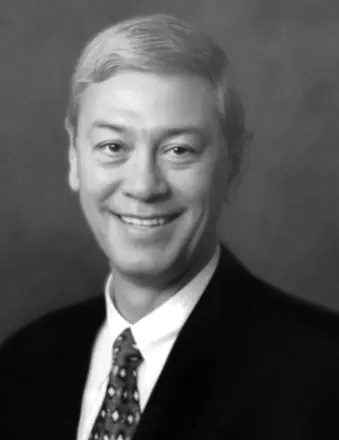Breadcrumb
The Department Mourns the Loss of Dr. David E. Klemm – 1947-2024
David Klemm—scholar, mentor, and pioneer in the study of religious hermeneutics and theological humanism—passed away on March 17, 2024, after a decades long battle with primary systemic Amyloidosis. Thanks to his will, character, and the loving care of his wife Cathy, David spent his last years enjoying time with his children, stepchildren, grandchildren, and dogs. He enjoyed reading and watching sports—particularly soccer and Chicago teams (not the Cubs)—after his illness kept him from a formerly active life involving running, swimming, tennis and golfing.

David began his career studying under Robert Scharlemann at the University of Iowa, succeeding Scharlemann as the keeper of a tradition of German-style hermeneutics grounded in the work of Frederic Schleiermacher, as well as Paul Tillich, and Paul Ricoeur. He published widely on Ricoeur, including an important monograph on Ricoeur’s hermeneutics. This foundation empowered David’s explorations of Religion and Nature, Religion and Science, Religion and Literature, and Religion and the Arts. These interdisciplinary strands would often converge, demonstrating why thinking theologically required literature, art, nature, and physics. David’s expansive interests grew from a diverse set of traditional underpinnings. His theological understanding embraced his Catholic upbringing and Protestant theological training, and expanded to include teachings from Trungpa Rinpoche and the Tibetan Buddhist tradition, as well as C.G. Jung’s depth psychology. His last years of teaching focused exclusively on Buddhism, for learners at the Garchen Mila Buddhist Center in Iowa City.
Almost as impressive as David’s wide range of publications and invited lectures was his dedication to service. Until illness forced his retirement, he served on the editorial board for the Journal of the American Academy of Religion as well as the Oxford Journal of Literature and Theology. In addition to many leadership roles in the Department of Religious Studies (including roles as Director of Religious Studies, Director of Graduate Studies, Undergraduate Chair, and the Honors Program Advisor) David left his mark on the wider culture of the University of Iowa, spending six years as the Director of the University Honors Program, and five years as part of the Faculty Assembly and Faculty Senate. Outside of Iowa, David was active on steering committees for the American Academy of Religion and was an external reviewer for 10 tenure decisions at peer institutions.
Although his organizational mind and desire to foster the growth of those around him meant that he enjoyed and excelled in leadership roles, David’s primary passion was teaching. He mentored 20 PhD students as primary supervisor, served on 5 additional student defenses in Religious Studies, and on 22 doctoral committees for students from 10 other departments across the university. He received the Marion L. Huit Award for Faculty Exxcellence; the Certificate of Appreciation for significant contributions as Director of the Honors Program; the University of Iowa Hancher-Finkbine Medallion, presented to one faculty member each year for learning, leadership and loyalty to the University of Iowa; and was elected as a faculty member of Omicron Delta Kappa Honorary Society. His brilliance, tempered by his wit and passion for playing his tunes (Bob Dylan, Neil Young) before class, was influential for a sea of undergraduates during his twenty-five year career.
David’s work notably demonstrated the value of friendship. Until his illness, David had published with colleagues William Klink in explorations of consciousness, and William Schweiker in Religion and the Human Future, which articulated a vision for a prescient approach to understanding called Theological Humanism. He also published forwards for books written by other friends—Thomas J. J. Altizer and David Jasper. Dale Wright, another early friend, remained an ongoing intellectual collaborator.
This legacy of appreciating the importance of friendships as part of good scholarship, anchored in David’s ability to balance a brilliant intellect with a sparkling wit, remains alive among the many graduate students whom he mentored—many of whom have remained collaborators over the past decades, continuing to think through the potentiality of the project of theological humanism.
I had the rare fortune of being a student and collaborator—and friend—of David’s. His dedication to teaching was unflagging—after watching a jaw-droppingly brilliant lecture in one of the last seminars he taught, I learned that he had gone to the ER, seriously ill, and returned for a meeting two days later. He was a fierce advocate for truth and integrity, using this passion to debate the merits of his positions. More importantly, he was magnanimous—a great souled man who was able to provide needed encouragement to several of his students—even after they graduated. His generosity in friendship extended to students, engaging and encouraging them to participate in conferences, journals, and other opportunities.
I knew David as a friend after graduation, and learned his softer side. I heard him laud his wife and children, saw his deep love for his dogs. We drank tea and he told me life was not limited to faculty positions. I heard about his time before enrolling at Iowa. His incredible character, stripped of physical strength, displayed a raw beauty and sensitivity that was a gift to know. Even when pain was clearly visible, he continued to express a calm serenity and compassion for those around. Witnessing this, I sensed that beneath the sheer power of his brilliant mind, David was a prized companion because of the quality of his soul. While I was his student, people would at times call me “David,” rather than “Daniel.” This was high praise. But more than the accident of a shared starting syllable, I suspect that these moments of confusion speak to the power of his influence. I suspect that David’s soul will continue to sparkle in and through the lives of those he knew and loved for many years to come.
By Dan Boscaljon, PhD, 2009